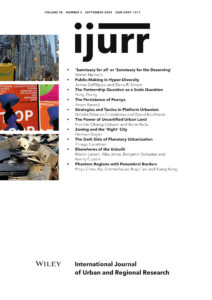Uncertified land abounds. The critical question is whether such land can provide security of tenure, access to finance, effective urban planning, and highest and best use. While much research contests the prospects and problems of conventional land title registration, the power of uncertified land is an issue rarely raised and, if done, hardly resolved holistically. Fundamentally still, economists, philosophers, urbanists and others continue to dispute such power, contending that certified and commodified land is the answer to urban problems. Such theoretical contests lead to the following bigger puzzles: (1) Do uncertified land tenure systems address questions of insecurity of tenure, access to finance, effective planning, and highest and best use, as claimed by the theory of ‘the commons in an age of uncertainty’? (2) Are the experiences of land title registration congruent with the theory of certified and commodified land? (3) Why do states pursue land title registration over other land policies? Thematic analysis of original data, collected between 2019 and 2023 in Bali, Indonesia, well documented as a place with an alternative land tenure system undergoing rapid commodification, helps to answer these questions. Our data seem to indicate that uncertified land can address the questions raised about security of land tenure, finance, effective planning, and highest and best use—prospects that elude certified and commodified land. The preference for the latter as the vision of land policy, we find, is rooted in political-economic structures that favour, and are reproduced by, a transnational alliance of monopolists.
Details
Written by:
Franklin Obeng-Odoom, Anne Haila
Digital Object Identifier (DOI)
https://doi.org/10.1111/1468-2427.13244
About DOI

